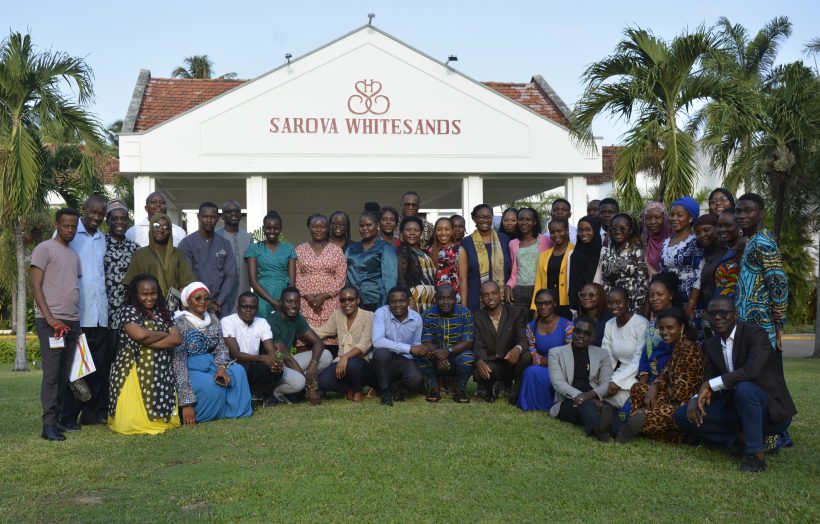
“It is frustrating when I cannot get along with someone, especially in a team setting at my workplace, but so far this week, I have learned the importance of empathy and appreciating that not every colleague is similar.” ~ Victoria Aniju
Victoria works in molecular genetics research at the University of Benin in Edo State, Nigeria. She is among 43 young career scientists participating as mentees in the second Cohort of the One Planet Fellowship.
Referred to as Learning Partners, the mentees are admitted into the Fellowship through a process that includes nomination by mid-career scientists who were earlier admitted into the One Planet Fellowship as Laureate Candidates and who will serve as their mentors.
This mentoring model is structured to build an intergenerational network of scientists working to develop climate solutions for Africa and lead climate work on the continent.
We convened the 43 scientists in Mombasa, Kenya, for an immersive experience as they participated in a Foundational Leadership Program for Emerging African Scientists.
The young scientists, all under the age of 30, come from 12 Anglophone and Francophone countries, including Benin, Burkina Faso, Cote d’Ivoire, Ethiopia, Kenya, Mali, Malawi, Nigeria, Senegal, Tanzania, Togo, and Zambia. The five-day leadership course is tailored to equip them with increased self- and team leadership competencies and enhanced communication and personal branding skills.
This is the Learning Partners’ second training in the One Planet Fellowship, following their participation in the Training and Networking week held in March in Nairobi.
The Foundational Leadership Course is tailored to address the soft skills gap that restricts young scientists’ transition into leadership roles as they progress through their careers. Soft skills range from cultivating assertiveness in oneself to handling conflict among teams and rallying a team behind their vision.
“We appreciate that you possess advanced academic and technical competencies, but we aim to impact you with the skills to lead research and scientific organizations,” AWARD Deputy Director Dr. Michèle Mbo’o-Tchouawou told the participants during the training’s opening session.”
Another key aspect is that the course prepares young scientists for effective organizational leadership.
“We need them to have the knowledge to deal with team dynamics once they get to supervisory roles,” says Allan Bukusi, an AWARD trainer from Kenya and a Human Resource consultant specializing in leadership development and strengthening organizational management competence.
Warou Koudjom, an Agricultural Economist from the University of Lomé, draws lessons from the course to improve his comprehension of leadership. “I have learned how to present myself confidently and give and receive feedback and, most importantly, how to work on that feedback,” says Koudjom.
The course also equips emerging female scientists with assertiveness to navigate the male-dominated industry. UNESCO data shows that women make up only 35% of STEM graduates, which might contribute to passiveness in the workplace.
In addressing this, “the participants gain skills in negotiating their way upwards in an organizational setting. The goal is not for them to be aggressive but rather to have the confidence to articulate their intentions,” says Siaka Coulibaly, an AWARD trainer from Burkina Faso, and a cross-culture and diversity training specialist.
See highlights from the workshop below.

